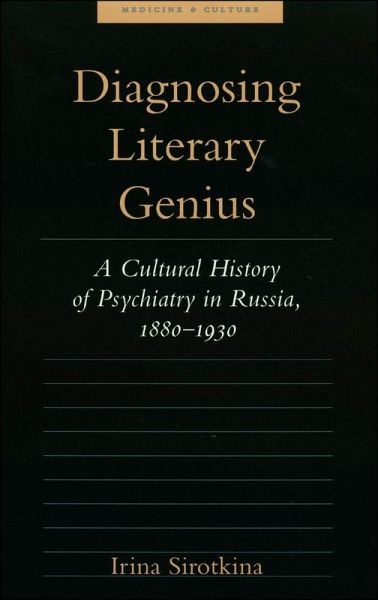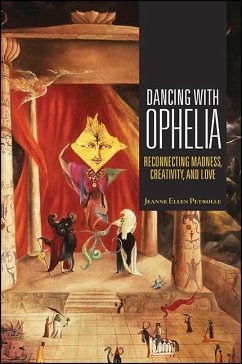
Diagnosing Literary Genius (eBook, ePUB)
A Cultural History of Psychiatry in Russia, 1880-1930
Versandkostenfrei!
Sofort per Download lieferbar
28,95 €
inkl. MwSt.
Weitere Ausgaben:

PAYBACK Punkte
14 °P sammeln!
Winner of the Aldo and Jeanne Scaglione Prize for Studies in Slavic Languages and Literatures from the Modern Language AssociationThe vital place of literature and the figure of the writer in Russian society and history have been extensively studied, but their role in the evolution of psychiatry is less well known. In Diagnosing Literary Genius: A Cultural History of Psychiatry in Russia, 1880-1930, Irina Sirotkina explores the transformations of Russian psychiatric practice through its relationship to literature. During this period, psychiatrists began to view literature as both an indicator ...
Winner of the Aldo and Jeanne Scaglione Prize for Studies in Slavic Languages and Literatures from the Modern Language AssociationThe vital place of literature and the figure of the writer in Russian society and history have been extensively studied, but their role in the evolution of psychiatry is less well known. In Diagnosing Literary Genius: A Cultural History of Psychiatry in Russia, 1880-1930, Irina Sirotkina explores the transformations of Russian psychiatric practice through its relationship to literature. During this period, psychiatrists began to view literature as both an indicator of the nation's mental health and an integral part of its well-being. By aligning themselves with writers, psychiatrists argued that the aim of their science was not dissimilar to the literary project of exploring the human soul and reflecting on the psychological ailments of the age.Through the writing of pathographies (medical biographies), psychiatrists strengthened their social standing, debated political issues under the guise of literary criticism, and asserted moral as well as professional claims. By examining the psychiatric engagement with the works of Fyodor Dostoevsky, Nikolai Gogol, Leo Tolstoy, and the decadents and revolutionaries, Sirotkina provides a rich account of Russia's medical and literary history during this turbulent revolutionary period.
Dieser Download kann aus rechtlichen Gründen nur mit Rechnungsadresse in A, B, BG, CY, CZ, D, DK, EW, E, FIN, F, GR, HR, H, IRL, I, LT, L, LR, M, NL, PL, P, R, S, SLO, SK ausgeliefert werden.













